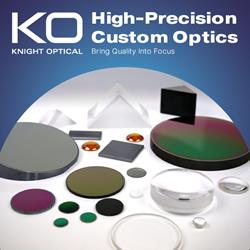MakerBot Thingiverse Announces Math Manipulative Challenge Winners
Thingiverse Helps Provide 3D Printed Math Manipulatives, One of the Most Requested Educational Tools for the Classroom
BROOKLYN, N.Y.--Recently, MakerBot® and its Thingiverse® website, a 3D design community for discovering, 3D printing and sharing 3D models, held a Thingiverse Math Manipulative Challenge in conjunction with the launch of the MakerBot Academy education initiative to put a MakerBot Replicator Desktop 3D Printer in every school in the United States. The Thingiverse Math Manipulative Challenge was held for the Thingiverse community to get involved with MakerBot's education initiative and design fun and useful 3D prints that teachers could create with their new MakerBot® Replicator® 2 Desktop 3D Printer immediately upon its arrival in the classroom.
The response to the Thingiverse Challenge included more than 160 entries that were very creative and ranged from shapes and gears to counting beads and fraction tiles. Three winners were selected and will receive MakerBot PLA Filament, Thingiverse t-shirts, and will have their creations featured on Thingiverse and in each of the MakerBot retail stores, located in New York, Boston and Greenwich, Conn. The First Place winner will also receive a MakerBot Academy bundle, which includes a MakerBot Replicator 2 Desktop 3D Printer, three spools of MakerBot PLA Filament, and MakerCare, a service and support program, to donate to his/her classroom of choice.
The winners include:
First Place: Seesaw Maths by Gyrobot
Great for teaching addition, subtraction, multiplication, and division, the beam on Seesaw Maths indicates a correct answer when it's level. To see Seesaw Maths, visit: http://www.thingiverse.com/thing:182549
Second Place: Math Gear(s) by SSW
This Math manipulative is designed to appear playful from the first look. It lies flat on desktop, so it will also work well with overhead projection systems. Behind the mechanical fun there are several simple ratio exercises. The Math Gear was designed with a seven tooth "Idler" gear to add reverse rotation without affecting the ratios. Each interchangeable gear has built-in graphics to indicate the number of teeth as well as rotation position. Some gear ratio formulas can be found here: http://en.wikipedia.org/wiki/Gear_ratio. Rubber bands provide tension to keep the wheels engaged no matter what the combination. To see this colorful winner, visit: http://www.thingiverse.com/thing:185912
Third Place: Math Spinner Toy by christinachun
This simple tool allows students to mix and match numbers to build simple addition, subtraction, multiplication, and division equations. The files are scaled down, but simply increase the scale to a preferred size, print, and easily assemble. It comes in small size for fewer place values or a larger size for more advanced math students. To see Math Spinner, visit: http://www.thingiverse.com/thing:185125
"We were really impressed with the creative math manipulatives the Thingiverse community came up with to support this challenge," noted Bre Pettis, CEO of MakerBot. "We love that they created a variety of easy to 3D print tools that can be used immediately in the classroom and will contribute to the math knowledge of students."
Launched just two weeks ago, MakerBot Academy is a major initiative to put a MakerBot Replicator 2 Desktop 3D Printer in public schools in America. MakerBot has already received funding to support 478 teachers in 410 schools. More than $1.1 million has been raised by MakerBot, its partners and individual donors and funded MakerBot Academy requests through DonorsChoose.org, the non-profit crowd-funding website just for teachers. The impact already has the potential to reach more than 92,000 students in the United States who will have the opportunity to access a MakerBot Replicator 2 Desktop 3D Printer in their school, and the movement is still growing. The MakerBot Academy initiative is a unique collaboration between MakerBot, DonorsChoose.org, America Makes, Autodesk, and individual and corporate donors and supporters.
Thingiverse is a 3D design community for discovering, 3D printing and sharing 3D models and offers more than 100,000 downloadable digital files. To learn more about Thingiverse and the MakerBot Thingiverse Math Manipulative Challenge, visit Thingiverse.com.
About MakerBot
MakerBot, a subsidiary of Stratasys, Ltd., is leading the Next Industrial Revolution by setting the standards in reliable and affordable desktop 3D printing. Founded in 2009, MakerBot has built the largest installed base of desktop 3D printers sold to innovative and industry-leading customers worldwide, including engineers, architects, designers, educators and consumers. MakerBot's 3D Ecosystem drives accessibility and rapid adoption of 3D printing and includes: Thingiverse.com, the MakerBot Digitizer Desktop 3D Scanner, the MakerBot Replicator line of Desktop 3D Printers, MakerWare software, MakerCare, the MakerBot retail store, and strategic partnerships with top-tier brands. MakerBot has been honored with many accolades, including Popular Mechanics' "Overall Winner" for best 3D printer, Time Magazine's "Best Inventions of 2012," Popular Mechanics' "Editor's Choice Award," Popular Science's "Product of the Year," Fast Company's "One of the World's Top 10 Most Innovative Companies in Consumer Electronics," and many more. Join the Next Industrial Revolution by following MakerBot at makerbot.com.
About Stratasys
Stratasys Ltd. (Nasdaq:SSYS), headquartered in Minneapolis, Minn. and Rehovot, Israel, manufactures 3D printers and materials for prototyping and production. The company's patented FDM® and PolyJet® technologies produce prototypes and manufactured goods directly from 3D CAD files or other 3D content. Systems include 3D printers for idea development, prototyping and direct digital manufacturing. Stratasys subsidiaries include MakerBot and Solidscape and the company operates the RedEye digital-manufacturing service. Stratasys has more than 1500 employees, holds over 500 granted or pending additive manufacturing patents globally, and has received more than 20 awards for its technology and leadership. Online at: stratasys.com or blog.stratasys.com.
Featured Product

